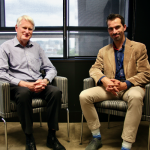Current MS care relies on short, scheduled appointments that do not consider individuals in their own environments and fluctuations in symptoms. Individuals inadvertently become passive partners in their own care.
We now have the potential to revolutionise MS monitoring by gathering day-to-day patient data and detecting disease progression via smartphone applications. This allows individuals to play an active role in their disease journey and provides an opportunity for early intervention to minimise disability. Currently, these mobile applications lack validation and real-world data. Once validated, these digital biomarkers (biological signs) would pave the way for more efficient drug trials in progressive MS.
This study aims to address these needs by 1) evaluating the feasibility, reliability and validity of app-based self-monitoring tools, 2) identifying mobile apps that can detect MS changes over time and predict the progression of disease, 3) integrating mobile app data with clinical and imaging data to develop predictive models of treatment failure.
This work will be based on data from ACTIVE MS. This is a multi-centre cohort study that uses three purpose-designed apps to assess multiple neurological domains including cognition, cerebellar function, mood, mobility and fine motor skills. The study will leverage the current MSBase registry infrastructure, providing a ready-made data integration system.
Dr Foong has developed digital biomarkers that are iPad-based and have been deemed reliable and acceptable to people with MS. These are biomarkers reported by individuals that indicate disability and for predicting future deterioration in cognition and upper limb function, as MS progresses. The digital biomarkers for disability reported by individuals are different to those that healthcare professionals use to assess people with MS and are not applicable in people with MS with mild disability.
Updated: 31 March 2024
$30,000
2022
3 years
Current project




